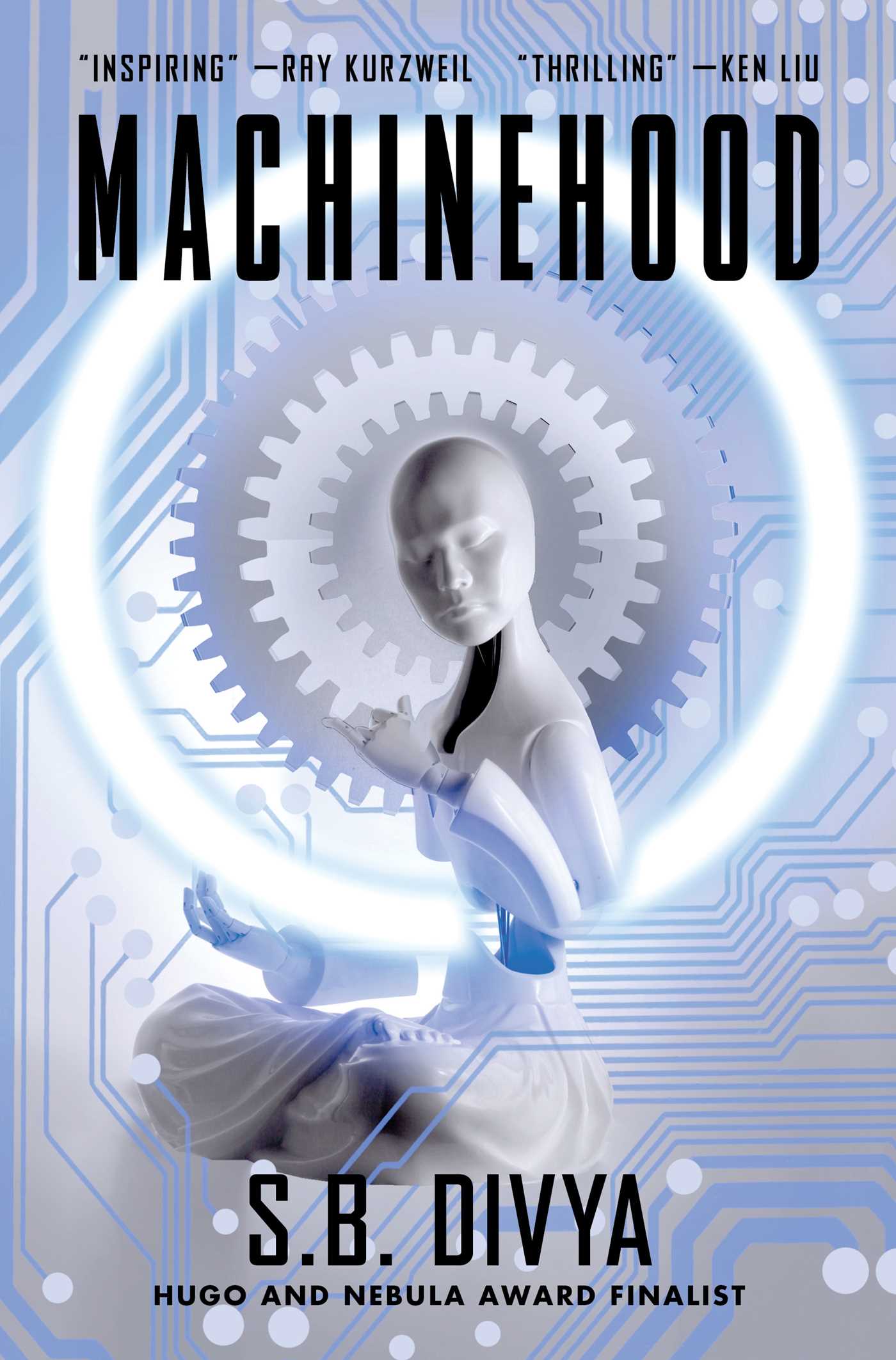
Machinehood
by S.B. DIVYA
In a near-future world dominated by a gig economy and artificial intelligence, a former special forces bodyguard is pulled back into intelligence work to combat a mysterious terrorist group called The Machinehood, who demand the cessation of pill production and advocate for equal rights for machines. The novel explores themes of AI sentience, labor rights, the impact of technology on society, and the blurred lines between humans and machines.
Reader Review Summary
"Machinehood" by S.B. Divya is a riveting and thought-provoking science fiction thriller set in the near future of 2095. The novel deftly explores themes of artificial intelligence, sentience, labor rights, and the consequences of humanity's growing dependence on technology in a world dominated by the gig economy.
One of the standout features of "Machinehood" is its immersive and well-crafted worldbuilding. Divya paints a vivid picture of a future where people rely on daily doses of pills to enhance their physical and cognitive abilities, allowing them to compete with artificial intelligence in an increasingly competitive job market. The author's attention to detail in describing the various enhancements, such as "zips" for speed, "buffs" for strength, and "flow" for focus, makes the world feel authentic and plausible. The exploration of the societal consequences of this pill-reliant culture, including the erosion of privacy and the constant pressure to perform, adds depth and relevance to the narrative.
The novel's protagonist, Welga Ramirez, is a compelling and well-developed character. As an ex-special forces operative turned executive bodyguard, Welga possesses a unique skill set that makes her the perfect candidate to investigate the mysterious terrorist group known as The Machinehood. Divya does an excellent job of humanizing Welga, delving into her past traumas and her struggles with the physical side effects of her enhancements. This adds a layer of complexity to her character and makes her journey throughout the novel all the more engaging.
The plot of "Machinehood" is fast-paced and gripping, with plenty of action and suspense to keep readers turning the pages. The central mystery surrounding The Machinehood and their ultimatum to stop all pill production within a week creates a sense of urgency and raises important questions about the rights of machines and the ethics of human enhancement. Divya's exploration of the potential consequences of advanced AI and the blurring lines between human and machine consciousness is both fascinating and unsettling.
Another strength of the novel is its diverse cast of characters and its thoughtful examination of gender fluidity in the future. The inclusion of Welga's sister-in-law, Nithya, as a secondary point-of-view character provides a different perspective on the events unfolding and allows for a deeper exploration of the societal and personal implications of the pill culture and the gig economy.
While some readers may find the abundance of technical jargon and the occasional info-dumping a bit overwhelming, Divya's clear and engaging prose makes the novel accessible to a wide audience. The author's background in engineering shines through in the plausibility of the technological advancements described, adding to the overall believability of the world she has created.
"Machinehood" is a must-read for fans of science fiction and anyone interested in the potential consequences of our increasing reliance on technology. Divya's novel is a timely and important work that raises crucial questions about the nature of intelligence, personhood, and the future of labor in a world where the lines between human and machine are becoming increasingly blurred. With its compelling characters, intricate worldbuilding, and thought-provoking themes, "Machinehood" is a standout novel that is sure to leave a lasting impact on readers.
Copyright ©2024 Hidden Sci-Fi






